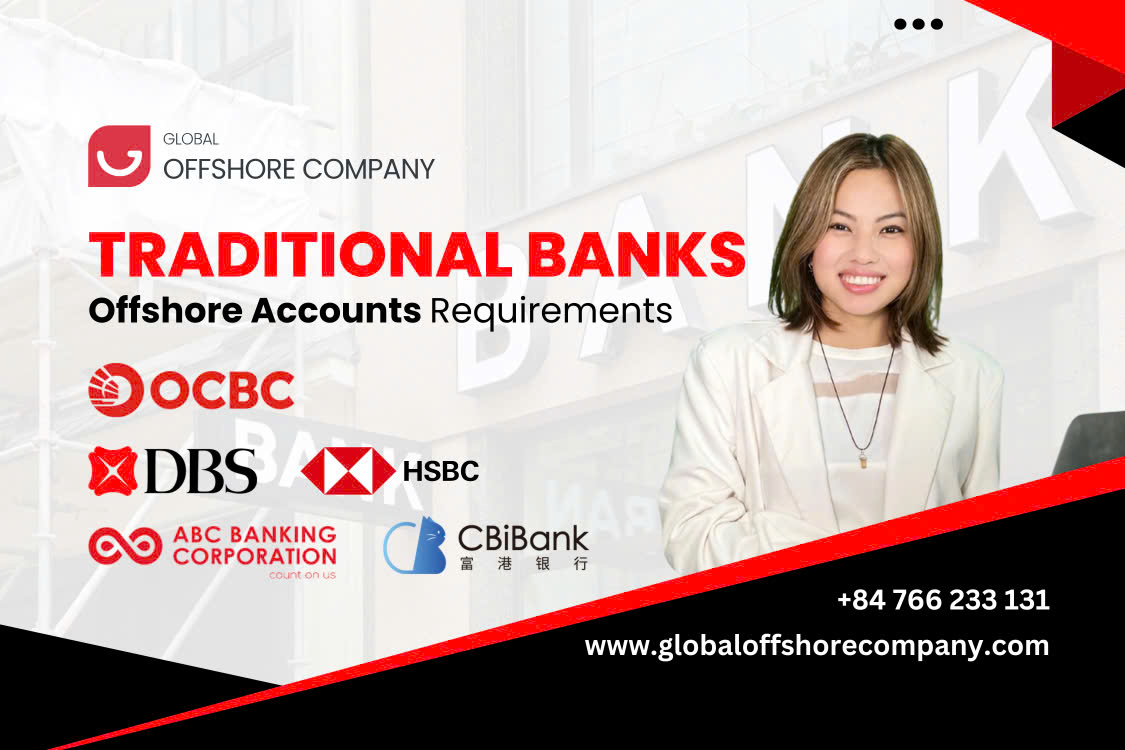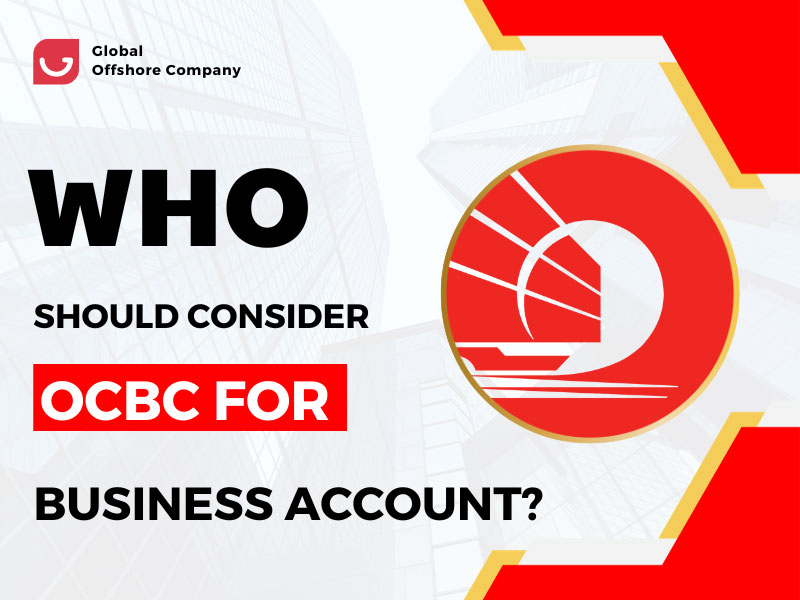A Guide to Understanding the Meaning of an Offshore Account
There is a rising demand for firms to establish an offshore bank account in an increasingly globalized, borderless corporate environment. It simplifies doing business, gives certain tax benefits, and allows for more financial mobility. But, what exactly is an offshore account? How do you go about opening an offshore bank account? Global Offshore Company will provide fundamental information about offshore accounts, including what they are and why you need them, in this section.
What is an offshore bank account ?
Offshore accounts, often known as offshore bank accounts or offshore savings accounts, allow you to handle your financial obligations in several nations and regions. These accounts will be useful for people who require foreign payments and transfers on a regular basis. Expats typically maintain two bank accounts. One in her native country and one in the one she now resides in. Opening an offshore account, on the other hand, might be beneficial for managing, investing, and safeguarding cash while abroad.
Global Offshore Company - G.O.C is there for you every step of the way, providing full assistance and ensuring your success. Our advice makes it simple to simplify your global money transfers.

What is an offshore bank ?
Historically, offshore banks were involved with the shadow economy, organized crime, money laundering, corruption, and tax avoidance. They were poorly governed. The complete banking confidentiality made the anonymous bank account very appealing. It was common practice back then to open an offshore account secretly using a password or number. There were even offshore banks with no physical presence until the Bush Administration implemented the USA Patriot Act in October 2001, making shell banks with offshore accounts illegal.
Anyone looking to create an offshore bank account nowadays is aware that offshore banks no longer provide complete banking confidentiality. The Automatic Exchange of Information (AEOI) and Common Reporting Standards (CRS) have almost abolished banking secrecy in tax concerns. Good offshore banks are now severely regulated. They want to know with whom they do business. KYC (Know Your Customer) rules are severely enforced. Not only must the customer explain the source of finances, but he must also show verifiable evidence of where his money originates from and what type of business he operates.
Are offshore bank accounts legal ?
One of the primary reasons people choose an offshore jurisdiction is to minimize their tax responsibilities. Some individuals may mistake this with criminal tax avoidance. There is a distinction between tax evasion and tax optimization since the latter is carried out in complete compliance with the rules of the nation in which the account is domiciled. Offshore banking must also adhere to the regulations of the nation where the account holder resides.
People often use offshore banking to reduce their tax burden in a perfectly legal and ethical manner. Many offshore jurisdictions provide zero or low tax rates on income and profits earned outside of the country. Contrary to popular belief, this is not unlawful.
Offshore banking, on the other hand, is about safeguarding yourself and your assets by storing them in a secure, regulated, and well-capitalized financial institution that provides extra benefits to both individuals and businesses.
Offshore banking has gotten unfavorable coverage, presenting an inaccurate picture of tax-avoidance millionaires hiding their fortune in obscure jurisdictions. When it comes to money and business, there are always evil actors, but this does not mean that everyone is the same.
Opening an offshore bank account is totally legal as long as you follow the rules. Furthermore, Fast Offshore does not cooperate with anybody who wishes to illegally conceal assets, commit financial crimes, or avoid paying taxes. We work with people who want to safeguard their hard-earned money in a way that benefits them, their family, and their future.

Offshore bank account benefit
Offshore accounts have a variety of unique characteristics and perks, each one more different than the last. Here are some of the most unusual:
Invest in tax-efficient initiatives and save in foreign currencies to gain tax advantages based on your position. Manipulate a plethora of currencies and have the ability to conduct transactions in a range of monetary units.
Manage currency exchanges with mastery and access to worldwide information and financial advice, learning the tools needed to traverse the tumultuous tides of the stock market. Maintain your wealth in a safe, centralized place that is linked to your local accounts, guaranteeing that your assets are not subject to the vagaries of fate.
Maintain the same bank account everywhere you go, providing you the flexibility to travel the world without having to worry about the time-consuming procedure of opening new accounts.
Offshore bank account opening requirement ?
Begin the perplexing process of opening a bank account, whether in your own country or in a distant place, as it requires comparable elementary components. Exotic financial institutions require unusual personal details such as your given name, date of birth, address, nationality, and occupation.
To validate this treasure trove of critical information, you must provide a photocopy of your passport, driver's license, or any other government-issued identity. Furthermore, your selected bank will investigate your city or actual residence, since it has weight in the domain of taxes. You will be needed to show a utility bill or a comparable document as proof of your address in order to satisfy this responsibility.

Who can open an offshore account ?
The act of creating an offshore banking account is available to those who dare to travel into the wide and undiscovered oceans of financial independence.
Even if you have a bank account in Canada and are an American, you are already banking "offshore." Offshore banking is sometimes cloaked in secrecy and depicted in a bad light, as it is typically connected with the financial world's dark underbelly.
Why Should I Get a Company Service Provider to Help Me Open the Account?
- A corporate service provider is required since certain banks will only create accounts through introductions. These financial institutions demand that the client be referred by a supplier or a trustworthy third party.
- In other circumstances, the supplier has a solid working relationship with the bank, and due diligence procedures are less stringent.
- Opening an offshore bank account can be a time-consuming and complicated procedure as well. The documentation needed, along with the requisite knowledge of local laws and practices, might be overwhelming for some. Banks frequently need lengthy lists of papers and application forms, which may be time-consuming to compile.
- Effective administration of offshore bank account opening results in a faster and less stressful process.
- Fast Offshore has been involved in international commerce for over 23 years. We've helped many customers create offshore corporations, open offshore bank accounts, and optimize their taxation throughout that period. Contact us now to learn more or just to discuss your choices.
Conclusion
Even the most daring financial explorer may find it difficult to get started with offshore internet banking. Because of the establishment of these banking organizations, their trustworthiness and dependability are clouded in mystery.
The potential benefits of opening an account, however, significantly exceed the dangers. While financial and legal risks are concerns, the benefits of shielding overseas assets make this business an appealing prospect depending on the specifics of each individual's financial circumstances.
Offshore bank accounts registered with G.O.C - Global Offshore Company are completely safe and provide customers with access to international digital banking.

Disclaimer: This article is for informational purposes only and does not constitute legal or financial advice. Consult with professionals before making any financial decisions

.png)









